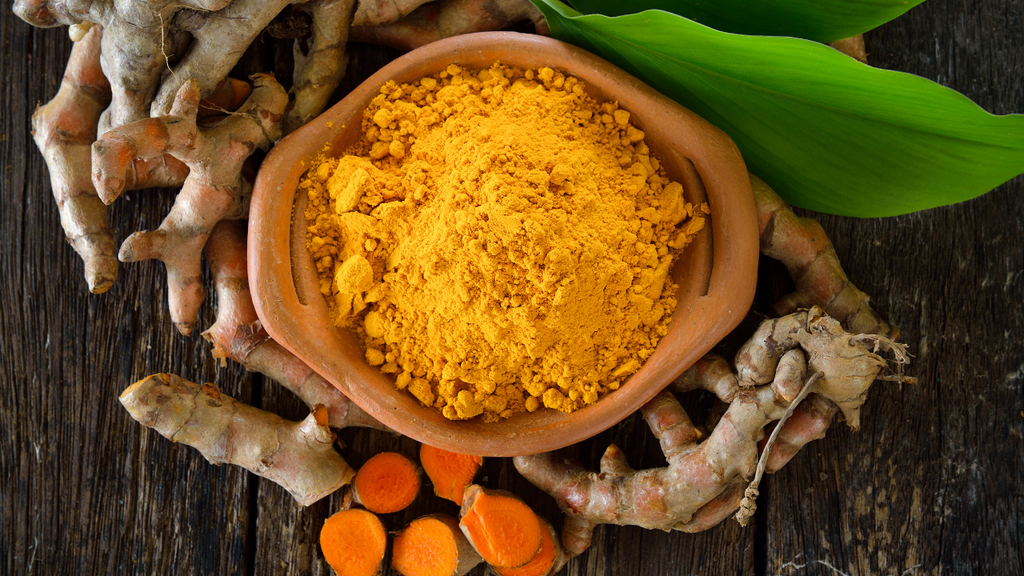Turmeric Gummies: A Natural Solution for Inflammation and Pain

Turmeric is a popular spice that has been used for centuries in traditional Indian and Asian cuisine. It is derived from the root of the turmeric plant and is known for its vibrant yellow color and distinct flavor. In recent years, turmeric has gained popularity as a natural supplement due to its potential health benefits.

Turmeric is a rich source of curcumin, a powerful antioxidant and anti-inflammatory compound. It has been shown to have a wide range of health benefits, including reducing inflammation, improving brain function, and potentially even preventing certain diseases such as cancer and Alzheimer's. The potency of turmeric can be enhanced when taken in supplement form, as the bioavailability of curcumin is increased.
Turmeric supplements are widely available in the market and come in various forms, including capsules, tablets, and powders. It is important to choose a high-quality supplement that contains a standardized amount of curcumin. It is also recommended to consult with a healthcare provider before starting a new supplement, especially if you have any existing medical conditions or are taking medication.
Overall, turmeric supplements offer an easy and convenient way to incorporate the potential health benefits of turmeric into your daily routine. By taking advantage of its powerful anti-inflammatory and antioxidant properties, you may be able to support your overall health and wellness.

Inflammation is a natural response of the body to protect itself from harmful stimuli, such as infections and injuries. However, chronic inflammation can lead to various health issues, including heart disease, arthritis, and cancer. Turmeric contains a powerful anti-inflammatory compound called curcumin, which has been shown to reduce inflammation in the body.
Studies have shown that turmeric can help relieve pain associated with inflammation. Curcumin works by inhibiting the production of prostaglandins, hormone-like substances that contribute to pain and swelling. Additionally, turmeric has been found to improve symptoms of osteoarthritis, rheumatoid arthritis, and other forms of chronic pain.
Turmeric supplements come in various forms, including capsules, tablets, and powder. It is important to choose a high-quality supplement with a standardized amount of curcumin, as the bioavailability of curcumin is low when consumed in its natural form. Some turmeric supplements also contain piperine, an ingredient found in black pepper that has been shown to increase the absorption of curcumin in the body.
While turmeric is generally considered safe for most people, high doses can cause side effects, such as nausea and diarrhea. It may also interact with certain medications, such as blood thinners and diabetes drugs. Before starting a turmeric supplement, it is important to speak with a healthcare provider to determine if it is right for you.

Pain is a complex phenomenon that is affected by many different factors, including the type of injury or illness that caused it, the person's overall health, and the way that they process and interpret information about their pain. Information plays a critical role in the experience of pain, and can greatly influence the way that people perceive and cope with it.
One of the key ways that information affects pain is through the power of belief. For example, if someone believes that a certain treatment or medication will help them relieve their pain, they may actually experience a reduction in pain levels as a result. On the other hand, if they believe that their pain will not go away, they may experience increased pain and suffering.
There is a growing body of research that suggests that psychological and social factors, such as anxiety, stress, and depression, can play a significant role in the experience of pain. People who are feeling anxious, stressed, or depressed may be more likely to perceive their pain as more severe and less manageable, which can in turn lead to an increase in pain levels.
In order to help people manage their pain more effectively, it is important to provide them with accurate and up-to-date information about the nature and causes of their pain. This can help them to understand their pain and develop coping strategies that are tailored to their individual needs and circumstances.
In addition to providing information about the nature and causes of pain, healthcare professionals can also play an important role in helping people manage their pain by providing emotional support and encouragement. This can include helping people develop positive coping strategies, such as relaxation techniques, exercise, and stress management, and providing them with practical advice on how to live with and manage their pain.
In order to effectively manage pain, it is also important to have access to effective pain management treatments, such as medications, physical therapy, and other forms of therapy. These treatments can help to reduce pain levels and improve the quality of life for people who are living with chronic pain.
There are many different approaches to pain management, and each person's experience of pain is unique. As a result, it is important to work with healthcare professionals to develop a pain management plan that is tailored to the individual's needs and circumstances.
Inflammation and pain are common health problems that can be caused by a variety of factors, including injury, illness, and chronic conditions. While over-the-counter and prescription pain medications can be effective, many people are seeking natural solutions for reducing inflammation and pain. In this article, we will discuss some of the most promising natural remedies for these symptoms.
Turmeric:

Turmeric is a spice commonly used in Indian cuisine that has been shown to have powerful anti-inflammatory and pain-relieving properties. Curcumin, the active ingredient in turmeric, has been shown to inhibit the production of pro-inflammatory compounds and reduce pain and swelling. To use turmeric for reducing inflammation and pain, it can be added to food, taken as a supplement, or applied topically in the form of a cream or oil.
Ginger:

Ginger is another popular spice with anti-inflammatory and pain-relieving properties. The active compounds in ginger, gingerols and shogaols, have been shown to reduce the production of pro-inflammatory compounds and relieve pain and swelling. Ginger can be consumed in a variety of ways, including fresh, dried, powdered, or as a supplement.
Omega-3 Fatty Acids:

Omega-3 fatty acids, found in fatty fish, nuts, and seeds, have been shown to have anti-inflammatory and pain-relieving effects. Omega-3 fatty acids work by reducing the production of pro-inflammatory compounds and improving blood flow to affected areas, which can reduce pain and swelling.
Bromelain:

Bromelain is a natural enzyme found in pineapples that has been shown to have anti-inflammatory and pain-relieving properties. Bromelain works by breaking down pro-inflammatory compounds and reducing pain and swelling. It is available in supplement form and can be taken on its own or combined with other anti-inflammatory agents.
Devils Claw:

Devil's claw is an herbal remedy that has been used for centuries to relieve pain and inflammation. The active compounds in devil's claw, harpagosides, have been shown to have anti-inflammatory and pain-relieving effects, and can be found in supplement form.
Willow Bark:

Willow bark has been used for centuries to relieve pain and reduce inflammation. The active compound in willow bark, salicin, has been shown to have anti-inflammatory and pain-relieving effects, and is thought to work by reducing the production of pro-inflammatory compounds. Willow bark is available in supplement form, but should be used with caution as it can interact with certain medications.
Acupuncture:

Acupuncture is an ancient Chinese healing practice that involves the insertion of fine needles into specific points on the body. Research has shown that acupuncture can be effective for reducing pain and inflammation, and can help to reduce the need for pain medications.
Turmeric supplements are believed to offer several potential health benefits, including:
Anti-Inflammatory:
 Turmeric's active ingredient, curcumin, is a potent anti-inflammatory compound that has been shown to reduce inflammation in the body.
Turmeric's active ingredient, curcumin, is a potent anti-inflammatory compound that has been shown to reduce inflammation in the body.
Pain relief:
 Curcumin may also help to relieve pain, particularly joint pain associated with conditions such as osteoarthritis.
Curcumin may also help to relieve pain, particularly joint pain associated with conditions such as osteoarthritis.
Improved brain function:
 Turmeric has been shown to improve brain function and reduce the risk of age-related cognitive decline.
Turmeric has been shown to improve brain function and reduce the risk of age-related cognitive decline.
Antioxidant:

As an antioxidant, curcumin helps to neutralize harmful free radicals and prevent cellular damage.
Heart health:

Some studies suggest that turmeric supplements may help to improve heart health by reducing risk factors such as high blood pressure and cholesterol levels.
Cancer prevention:

There is evidence to suggest that curcumin may have anti-cancer properties and may help to prevent certain types of cancer.
Improved digestion:
 Turmeric may also help to improve digestion and alleviate symptoms of digestive conditions such as irritable bowel syndrome.
Turmeric may also help to improve digestion and alleviate symptoms of digestive conditions such as irritable bowel syndrome.
While it is generally considered safe for most people, there are some potential side effects to be aware of before taking turmeric supplements.
- Digestive Issues: Turmeric can cause digestive problems such as bloating, gas, and diarrhea in some people. This is especially true if the supplement is taken in high doses.
- Interactions with Medications: Turmeric can interact with certain medications, including blood thinners, diabetes drugs, and medications that decrease stomach acid. It is important to talk to your doctor before taking turmeric supplements if you are on any medications.
- Risk of Kidney Stones: Turmeric contains oxalates, which are compounds that can contribute to the formation of kidney stones. People who are prone to kidney stones should talk to their doctor before taking turmeric supplements.
- Pregnancy and Breastfeeding: There is limited research on the safety of turmeric during pregnancy and breastfeeding. Until more is known, it is best to avoid taking turmeric supplements during these times.
- Allergic Reactions: Some people may be allergic to turmeric, and taking supplements can cause symptoms such as itching, hives, and difficulty breathing.
- Staining of Skin and Clothing: Turmeric has a yellow pigment that can stain skin and clothing. This can be especially problematic for people who take high doses of turmeric supplements.
- Reduced Iron Absorption: Turmeric can interfere with the absorption of iron, which is important for maintaining good health. People who have iron-deficiency anemia or are at risk for this condition should talk to their doctor before taking turmeric supplements.
Turmeric is a popular natural remedy for reducing inflammation and pain. The active ingredient in turmeric, curcumin, has been shown to have powerful anti-inflammatory and pain-relieving properties. It works by reducing the production of pro-inflammatory compounds and improving blood flow to affected areas, which can reduce pain and swelling. By incorporating turmeric into your health regimen, either through food or supplement form, you may be able to effectively manage your symptoms and improve your overall health and well-being.
However, it is important to note that not all turmeric supplements are created equal. The quality and potency of turmeric supplements can vary greatly, so it is important to choose a high-quality product from a reputable source. Additionally, some people may be allergic to turmeric, so it is important to be aware of the potential side effects and talk to your doctor before starting any new treatment.
While turmeric is generally considered safe for most people, it can interact with certain medications, so it is important to talk to your doctor before taking turmeric supplements if you are on any medications. It is also important to follow recommended dosages and not exceed the recommended amount, as taking high doses of turmeric can cause digestive problems and other side effects.
They are a natural solution for inflammation and pain. With its anti-inflammatory and pain-relieving properties, turmeric can help alleviate symptoms of chronic conditions, such as arthritis and heart disease. However, it is important to choose a high-quality supplement and speak with a healthcare provider before starting any new supplement regimen. It's important to note that while these health benefits are promising, more research is needed to fully understand the effects of turmeric supplements on human health. It is also recommended to consult with a healthcare provider before starting a new supplement, especially if you have any existing medical conditions or are taking medication.
In conclusion, turmeric is a promising natural remedy for reducing inflammation and pain. By incorporating turmeric into your health regimen, you may be able to effectively manage your symptoms and improve your overall health and well-being. However, it is important to talk to your doctor before taking turmeric supplements and to choose a high-quality product from a reputable source. By doing so, you can enjoy the benefits of turmeric while minimizing the potential for side effects.


